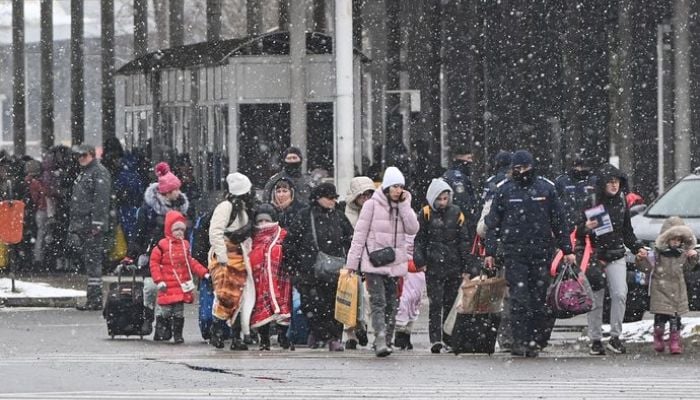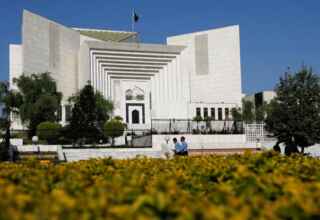
Ukraine’s Western allies pledged an additional one billion euros ($1.1 billion) in emergency winter aid on Tuesday, responding to pleas from President Volodymyr Zelensky to help the country withstand Russia’s onslaught against its energy grid.
Around 70 countries and international organisations gathered in Paris for a meeting aimed at enabling Ukrainians “to get through this winter”, said French President Emmanuel Macron.
In a video message, Zelensky said Ukraine needed assistance worth around 800 million euros in the short term for its battered energy sector.
“Of course it is a very high amount, but the cost is less than the cost of a potential blackout,” Zelensky told the conference via video link.
Pledges for the energy sector comprised 400 million euros of the funds raised on Tuesday, France’s Foreign Minister Catherine Colonna said.
Ukraine needs spare parts for repairs, high-capacity generators, extra gas as well as increased electricity imports, Zelensky said.
“Generators have become as necessary as armoured vehicles and bullet-proof jackets,” he said.
Ukrainian Prime Minister Denys Shmygal said 40 to 50% of the country’s grid was out of action because of Russia’s strikes.
Many areas of the country have power for only a few hours a day.
Another 1.5 million people were left without power in southern Odessa over the weekend after Russian drone attacks.
“They want to put us into darkness and it will fail, thanks to our partners all over the world,” Shmygal told delegates.
Bridge attack
On the battlefield Tuesday, local authorities in the Russian-occupied city of Melitopol said pro-Kyiv forces had used explosives to damage a strategic bridge.
Melitopol is an important transport hub for Russian forces in the region of Zaporizhzhia and is key for Ukraine´s hopes of liberating the south of the country.
The bridge in the eastern suburbs “was damaged by terrorists”, Vladimir Rogov, a Moscow-installed regional official, said on the Telegram messaging app.
He did not specify the extent of the damage, but images on his social media accounts showed that a middle section of the bridge had collapsed.
Elsewhere on Tuesday, Belarus held a surprise inspection of its armed forces, raising fears of a possible escalation in the conflict.
Belarus is a close ally of Moscow, but Belarusian leader Alexander Lukashenko has repeatedly said he does not plan to send Belarusian troops to Ukraine.
Ukrainian PM Shmygal also said Tuesday that the UN nuclear watchdog IAEA had agreed to dispatch permanent teams to monitor the country´s nuclear plants.
They are expected to take up positions in the Russian-controlled Zaporizhzhia plant, a hotspot of fighting, which has been a source of global concern in recent months.
A deal to de-militarise the site, which would see both sides withdraw forces, has proved impossible so far despite international diplomatic efforts.







